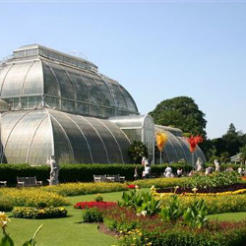Nick Clegg yesterday announced an additional £2.3m of funding to support Kew Gardens’ botanical research and plant science, just hours before a Westminster Hall debate on its funding.
The debate was secured by Zac Goldsmith, MP for Richmond Park and North Kingston, the constituency in which Kew is located. The funding has been welcomed by Kew Gardens, but plans to cut up to 125 jobs by March will still go ahead.
The £2.3m comes from the Department for Education, Food and Rural Affairs, which was allocated it as additional funding by the Treasury, and follows an earlier commitment by the Deputy Prime Minister to maintain resource funding for the Royal Botanical Gardens Kew. At the time of that announcement in September, Clegg pledged £1.5m - the latest £2.3m is additional.
Nick Clegg said: “Kew is so much more than a garden and green space: its reputation as a botanical research base and centre for science is world-renowned. Balancing the books in this country has meant budgets are tight, but I’m delighted to be able to commit continued funding for Kew, as both a leading research hub and beautiful tourist attraction.
“Supporting scientific excellence in the UK is a key part of strengthening Britain’s economy, and this government is focused on enabling research and development work to prosper across the country. This funding will support scientists to continue their world-class work at Kew, safe in the knowledge that this government supports their vital work and is committing funds to support it.”
In response to the funding announcement, Richard Devererell, director at the Royal Botanical Gardens, said: “This money will go some way towards managing our journey to a sustainable financial future.
“However, Kew is seeking greater stability in our government funding. An assured long-term funding settlement would be invaluable for effective planning, reduce volatility and would allow us to come out of this transition phase on a firmer footing, with a clear strategic vision for our organisation.”
Speaking at yesterday’s debate, Zac Goldsmith said: “Kew is not looking for the odd reprieve. Kew cannot look to the long term if its funding arrangements are so short term and so uncertain.”
He added: “If we push Kew purely to the commercial, which is where I think it will head if these cuts continue, we risk losing something inherently important and valuable.”
In March, Kew announced a £5m deficit for the year and plans to axe about 125 science and public engagement staff. The shortfall arose because of a combined reduction of around £3.5m from its two main grant sources, a grant-in-aid from Defra and from the Kew Foundation, which raises money from supporters.
A petition which calls on the government to reverse existing cuts to Kew’s annual operating grant-in-aid funding has now had over 105,000 signatories.
Unicef gets £2.5m for Ebola fight
Separately, the Department for International Development has also announced a £2.5m grant for Unicef UK to help ensure children who have lost family or whose parents are being treated for Ebola get the care and support they need.
International Development Secretary Justine Greening made the announcement yesterday during a trip to Sierra Leone where she visited those affected by the disease.
She said: “Ebola not only takes people’s lives, it leaves children without families and survivors facing rejection from their communities. Our work will ensure these people are not left behind once Ebola is defeated.”









